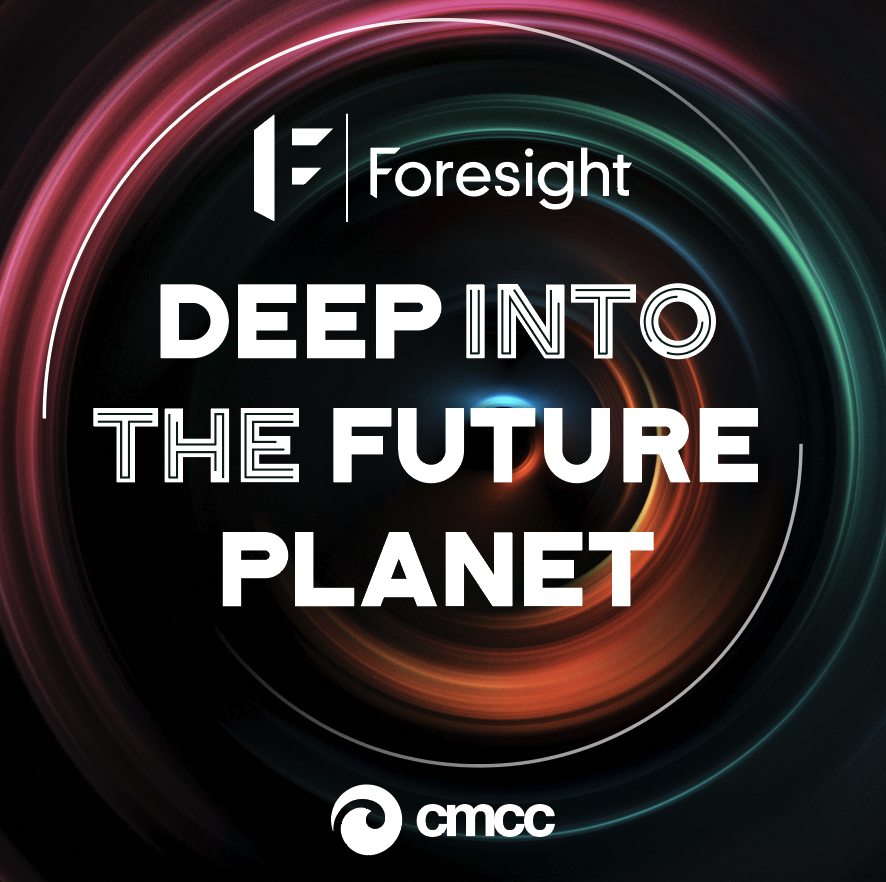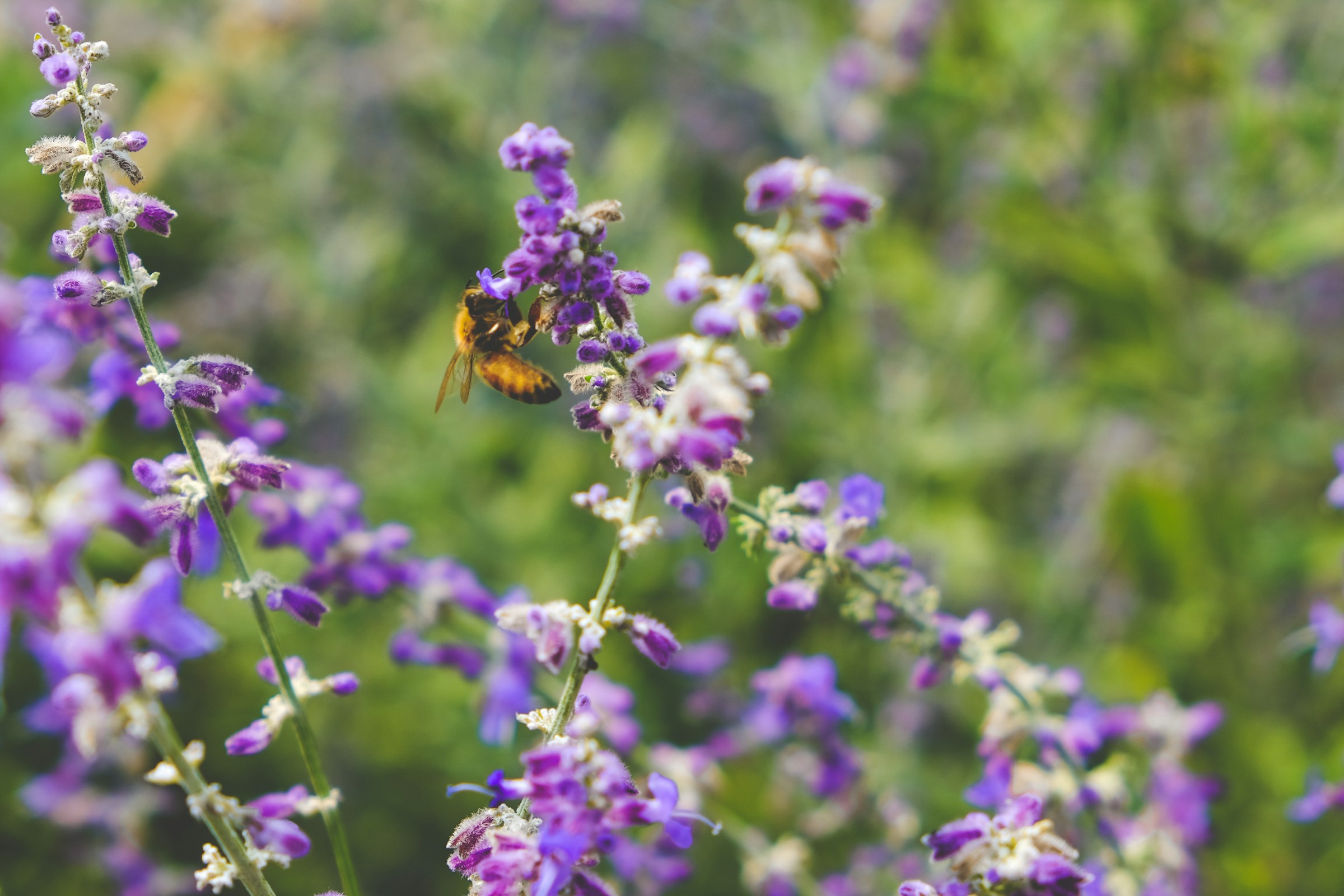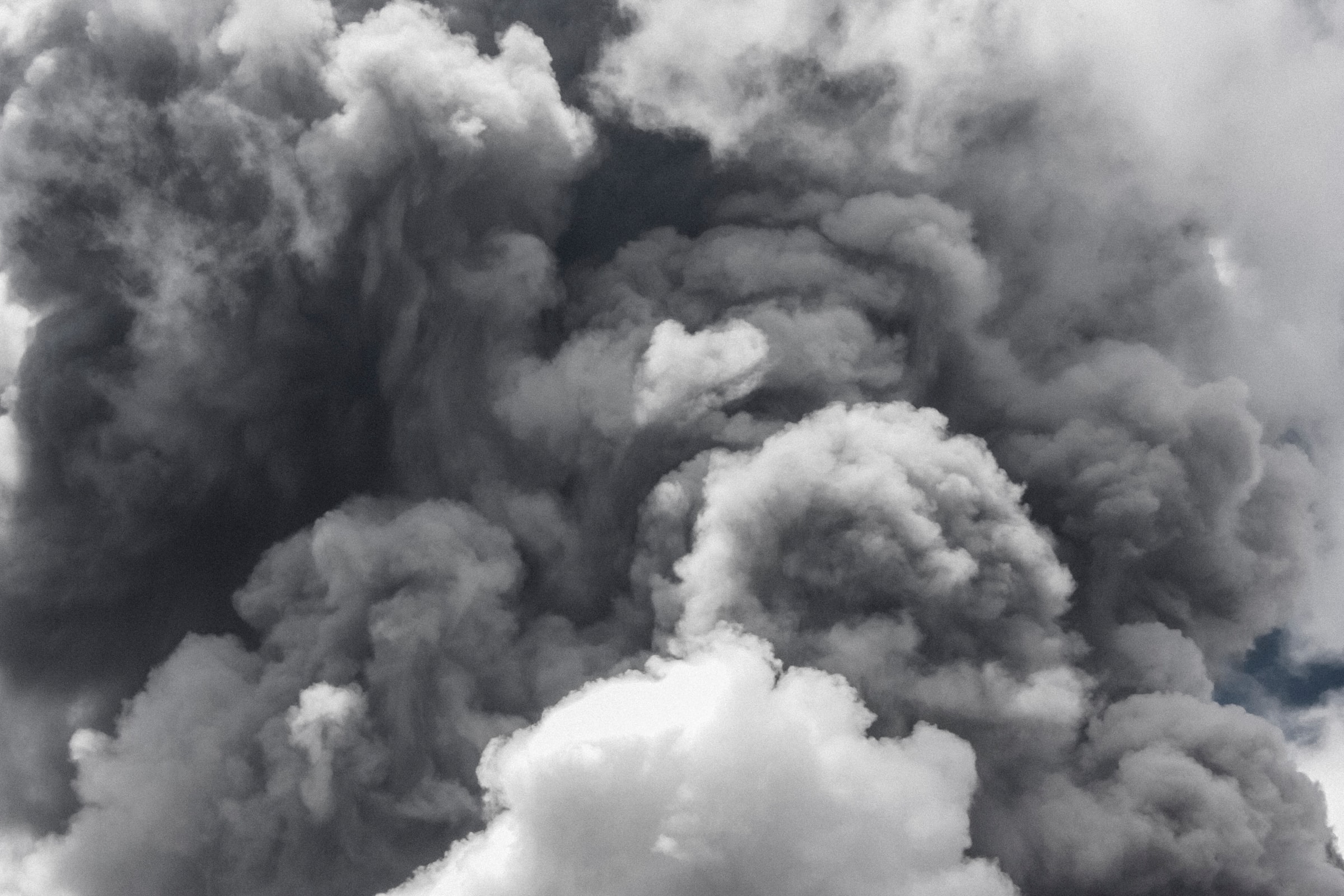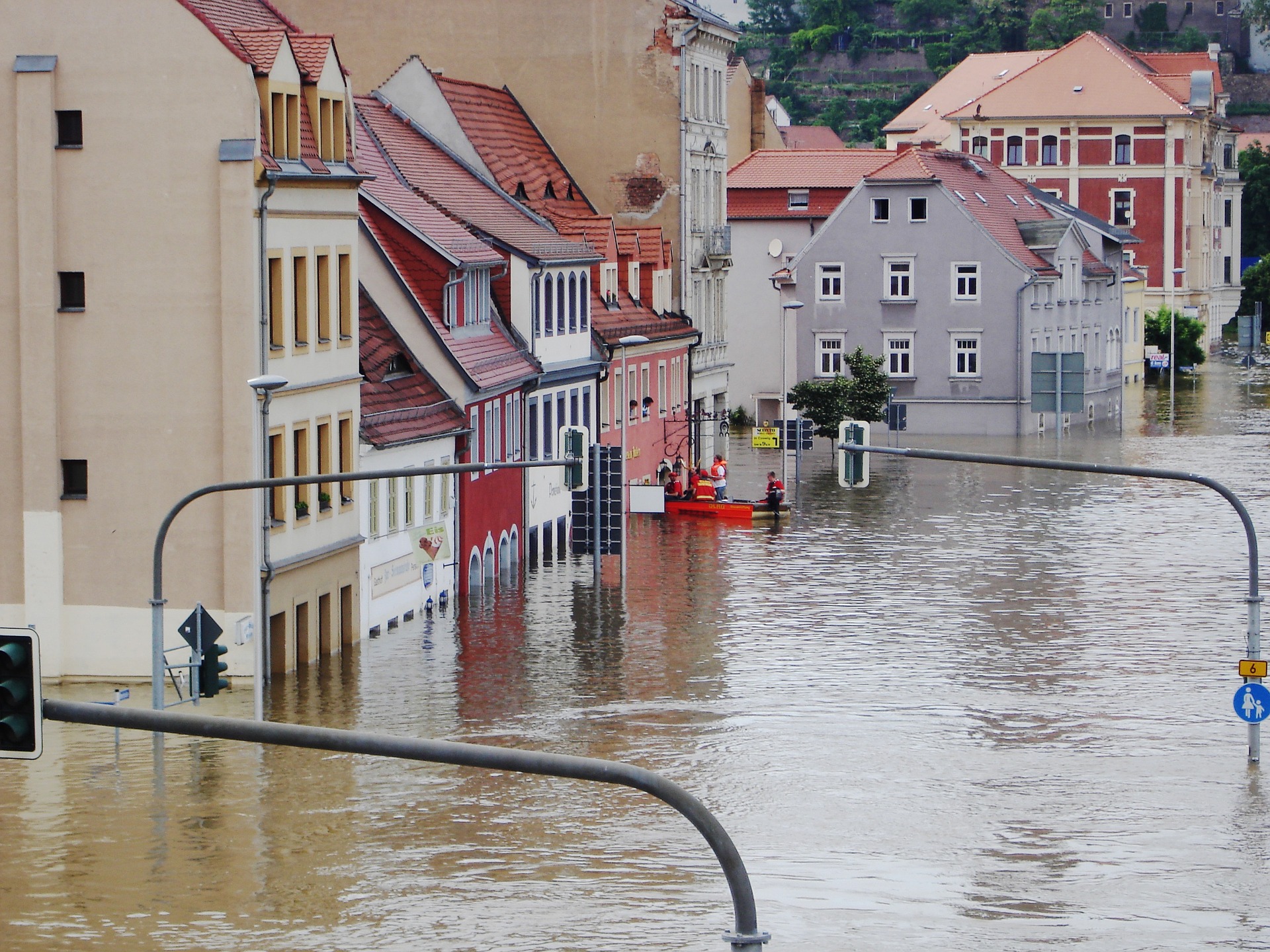We explore how scientific information can inform climate justice through the voices of a scientist and a lawyer: Delta Merner, Lead Scientist of the Science Hub for Climate Litigation at the Union of Concerned Scientists, and Lucy Maxwell, human rights and climate change lawyer and co-director of the Climate Litigation Network within the Urgenda Foundation.
Each from their specific perspective, they share the common goal of making climate justice a reality worldwide. And they believe that, in the future, climate litigation will be successful when we don’t need it anymore.
Foresight – Deep into the Future Planet, a podcast produced by the CMCC and FACTA.
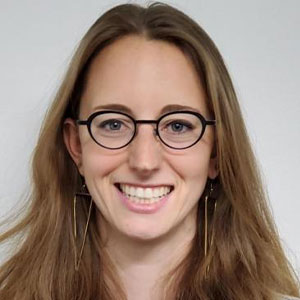 Delta Merner is the lead scientist for the Science Hub for Climate Litigation at the Union of Concerned Scientists. She has a PhD in geography and environmental systems from the University of Maryland, Baltimore County. She also holds bachelor of science degrees in geography and environmental science and policy from Clark University. Prior to joining UCS, she was a senior scientist at the American Institute of Physics, where she most recently conducted a global survey measuring the gender gap in science.
Delta Merner is the lead scientist for the Science Hub for Climate Litigation at the Union of Concerned Scientists. She has a PhD in geography and environmental systems from the University of Maryland, Baltimore County. She also holds bachelor of science degrees in geography and environmental science and policy from Clark University. Prior to joining UCS, she was a senior scientist at the American Institute of Physics, where she most recently conducted a global survey measuring the gender gap in science.
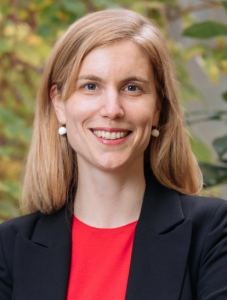
Lucy Maxwell is the Co-Director of the Climate Litigation Network, a project of the Urgenda Foundation. The Climate Litigation Network works behind the scenes with local and global partners to support ground-breaking cases that compel national governments to ramp up their mitigation ambition. Lucy is an Australian-qualified lawyer, with a decade of experience working on human rights, climate change and strategic litigation in national and regional fora.
Podcast transcript
LUCY MAXWELL: Climate justice is one form of a fairer society in which people’s rights are respected. And it became clear to me that that was needed. That was the orientation for my work in human rights protection.
DELTA MERNER: Science has a really clear place in climate litigation and the scientific community has a really important role to play.
Governments worldwide are failing to act fast enough on the climate crisis. But civil society is stepping in, urging institutions to take responsibility.
When it comes to climate justice, there is a powerful tool citizens’ organizations have to hold the powerful accountable: climate litigation.
With the support of specialized legal teams, scientists and NGOs, people can take companies and even governments to court over climate change.
I am Giulia Bonelli, science journalist, and this is Foresight – Deep into the Future Planet, a podcast produced by the CMCC Euro-Mediterranean Centre on Climate Change and FACTA.
Today we dive into the complex world of climate litigation. We explore how science can inform climate justice through the voices of a scientist and a lawyer – both fighting for human rights and environmental justice.
LUCY MAXWELL: Climate litigation is a very, very broad field. One area that we work on is mitigation, but there’s climate litigation about adaptation. There’s climate litigation about loss and damage, increasingly about finance. And it’s not only governments that are being taken to court as we know that there’s high profile cases against big fossil fuel companies, increasingly against banks for their role. And a wide range of different people are being held to account for their contribution to the climate crisis in a growing climate litigation movement.
In 2019, the Supreme Court of the Netherlands affirmed that the Dutch government was responsible for not taking sufficient action against climate change. It was considered a violation of human rights, and the government was ordered to reduce greenhouse gas emissions by at least 25% from 1990 levels.
It was the first time in history that a court had come to such a conclusion, and this case became famous worldwide as the Urgenda Case.
LUCY MAXWELL: The Urgenda case was the first time globally that a court ordered a government to reduce its greenhouse gas emissions in order to protect people from the harms posed by climate change. So this was a watershed moment for the climate justice movement and for the role of law in supporting greater climate action.
It was filed back in 2013. And so at that point in time, the Urgenda Foundation, which brought the case together with 800 Dutch residents, were looking ahead to 2020. And we’re saying that the Dutch government was nowhere near on track in terms of emissions reductions, given what the science said was necessary to prevent dangerous levels of global warming.
This is Lucy Maxwell, a human rights and climate change Australian lawyer based in London. Over the past decade, she has worked on human rights law, climate change and strategic litigation at the regional, national and international levels. She is the co-director of the Climate Litigation Network within the Urgenda Foundation.
LUCY MAXWELL: The Urgenda Foundation is a Dutch sustainability NGO that was founded in 2007. It aims for a fast transition towards a sustainable society with a focus on building a circular economy using only renewable energy. It works on lots of solutions for this transition. So things like building and realizing energy neutral houses and ramping up electric mobility through vehicles. The Climate Litigation Network is a program of the Urgenda Foundation. We work with partners outside the Netherlands, around the world, communities and legal teams to bring groundbreaking cases against national governments to ramp up their mitigation ambition.
Our day to day work involves very much behind the scenes support for communities and their legal teams in terms of legal and scientific input to cases. Engagement with UN bodies when they are considering states human rights obligations in the context of climate change. Working with scientists and legal academics to build the foundation for accountability in this area. So it’s a very varied role that we have, but it’s focused on at the moment litigation against national governments to ramp up mitigation efforts because that’s the primary way we can prevent further climate harms is through mitigation, ambition and rapid reduction of GHG emissions.
Going back to the most significant Urgenda Foundation success, the Urgenda case, it was a game changer in Europe and beyond. As the final binding order came down from the highest court in the Netherlands, we saw multibillion-euro packages of measures to boost renewable energy, increase energy efficiency and reduce emissions. And, at the global level, the Urgenda case opened up a new dialogue between human rights law and climate science, as Lucy Maxwell explains.
LUCY MAXWELL: The task before the court was that the government increased its mitigation efforts in order to do its part to reduce dangerous climate change. And at three different levels, the Dutch courts agreed with this primary task, in essence, that existing legal obligations of the government, which here were in tort law or Dutch civil code, could be applied to the problem of climate change. And the Dutch government indeed owed a duty to its people to take greater mitigation measures in order to do its part to prevent dangerous climate change. And so by late 2019, the highest court in the Netherlands affirms this decision and produces a judgment that is then engaging with human rights law. The government’s obligations under the European Convention on Human Rights, which becomes another important part of the government’s obligations in this area, and it becomes the highest court in any country to give a decision on a government’s legal obligation to mitigate climate change, and especially in terms of what human rights law has to say about climate change.
It has a transformative effect on climate efforts and climate policy in the Netherlands. And then stepping outside the Netherlands, the Urgenda case inspired a global climate litigation movement from just one case filed back in 2013, now there are around 60 to 80 similar cases filed globally against governments. Which targets around a third of global CO2 emissions. So litigation is being seen by lots of different communities around the world as a really important tool, along with other techniques to increase the ambition of governments. Because we all know what the science says. Governments are woefully inadequate in their current efforts and we have to start holding them to account.
The IPCC, in its latest assessment report, recognized both the role of the Urgenda case in sparking this global climate litigation movement, but also more generally, the role of climate litigation in climate governance. The IPCC recognized that climate litigation is an important component now in increasing climate efforts around the world. So that’s very exciting to say, and that’s what everyone is hoping for.
With the IPCC recognition, it became clear that climate-related litigation has broadly influenced the outcome and the ambition of climate governance. And, of course, climate science plays a crucial role in holding big polluters accountable for climate-related damages.
DELTA MERNER: Scientists have a really important role to play in climate litigation. So as experts, we can work to conduct robust and timely litigation, relevant scientific research. We can help to inform the courts through amicus briefs or legal interventions. And these are legal documents that exist specifically to create space for people, to assist judges with relevant information, to kind of help educate and inform judges about complex issues such as climate change. And scientists can also enter the courts as expert witnesses. So there’s a wide range, kind of everything from the research that you’re doing, being able to be used in court to maybe informing the courts more directly, but often informally or through truly being an expert witness. Science has a role to play in all of those spaces.
This is Delta Merner. She has a PhD in geography and environmental systems from the University of Maryland in the U.S., and she is the Lead Scientist of the Science Hub for Climate Litigation at the Union of Concerned Scientists, a nonprofit organization aimed at using rigorous, independent science to solve our planet’s most pressing challenges. And climate litigation can be a powerful tool to limit climate harm, as Delta Merner explains.
DELTA MERNER: At the Union of Concerned Scientists, we see climate litigation that is informed by science as one tool at our disposal to help address climate change.
So specifically, the science hub has four main areas that we work on. So we seek to catalyze legally relevant scientific research, to expand the community of scientists and legal experts that are working to inform climate litigation, to make robust litigation relevant science widely available. So this is a whole kind of field of litigation, relevant science that’s really important for the scientific community to engage with and understand. And then finally, we work to connect legal teams with experts in relevant fields. So as lead scientists in this space, I work to provide timely scientific evidence to inform legal cases. Particularly, we work on a lot of cases that focus on holding fossil fuel companies accountable for climate related damages in that, you know, that looks like I review legal communications for scientific accuracy. I’ll connect legal teams with technical experts, lead training for scientists that are working at this intersection of climate science and the law and work on litigation, relevant scientific research itself. So just to say that’s kind of the broad area where science can play a number of roles and where the science hub is kind of operating.
As a young researcher, Delta Merner never thought she would use science in legal spaces. But then she was asked to be a witness in a court case, and everything changed.
DELTA MERNER: So my research was relevant to some flooding issues that communities were having there. And I was asked to present my research in court to testify about it. And at that time I had no understanding of what an expert witness was. I had no training on it. I didn’t think about the difference in communication. I didn’t think about what the other lawyers were really trying to do. I just kind of naively thought that I’d get up there and talk about my science. And, you know, the judge would ask some good questions and I’d get down and it would all be great. And it was a really hard experience. You know, you get up there and then the other side is trying to discredit your work, is trying to get you caught up in things that you’re saying. They’re asking for certainty when the basic language of science is understanding uncertainty, it’s not so much about that kind of certainty. It’s knowing where you’re asking the question, where the next questions are. And that was a real learning moment for me and also a real moment to understand how difficult or how unnatural it can be for scientists to be in this space and how, again, how different that communication can be between these two different communities. But how important it is, right? How we have judges and juries that are making these essential decisions. And it’s really critical that they’re understanding the science that can inform these decisions that they’re making.
So the role of scientists in climate litigation is complex and interconnected with many other roles and expertise. And the base of all of this work is the research that informs climate litigation. From the Urgenda case on, the current rise in climate litigation cases is closely tied to scientific advances, particularly in two fields: the so-called attribution science and climate obstruction. Again, Delta Merner.
DELTA MERNER: So I’ll talk a little bit about these two fields. So attribution science and climate obstruction. So attribution science itself, it helps to answer the question, did climate change play a role in that? So climate attribution in this field of work has really only been around for about two decades, which makes it an incredibly new science. But while the science is new, the concepts really aren’t looking at kind of how we attribute, you know, actors to harm. That’s happening within climate attribution. There’s really two major areas of research. So there’s event attribution and there source attribution.
So generally what’s talked about most is the extreme event attribution. And this can tell us how climate change may have added to the severity of an event, for example. So studies can now tell us how much hotter a heat wave is or how much greater the intensity of a downpour is during a hurricane or, you know, during other rainfall events. And you know, what role of that is specifically from climate change. So the event is looking at individual kinds of climate events. Source attribution is looking at where the emissions came from. So where is the carbon coming from that essentially enabled the warming to occur. That is driving impacts within events. One of the things that’s been exciting is that we can now attribute climate change to specific emissions sources kind of through this source attribution science.
So there’s the physical science, which is essential, but there’s also really key social science. And in the U.S., most of our cases here, the. Climate litigation cases are actually really based on the social science findings. So this area of research is also often called obstruction of climate science. So it’s this kind of where they’re blocking climate science. And this research can help to better understand if climate science and actions were impeded or blocked through international obstruction.
So really, like a huge question that comes out of this research in this understanding is, you know, where would we be today if the fossil fuel industry acted in the 1960s when they were beginning to understand the grave impacts of their products and what the implications would be for global climate. And that looks like a very different world.
The scientific questions coming from science in climate litigation are not simple “what-if” scenarios. On the contrary, they are practical questions, leading to practical decisions about adaptation, loss and damage, finance. We asked Delta Merner to give us an example of this complex yet crucial process.
DELTA MERNER: I think probably the best example of this is towards the end of 2022. So towards the end of last year, there were six jurisdictions in Puerto Rico that filed a first of its kind climate racketeering lawsuit that alleged ExxonMobil, Shell, Sever, Chevron and a number of others publicly that they colluded to publicly deny the climate risk of their products. So the plaintiffs here contend that the defendants are liable because, again, the social science shows that they knowingly kind of caused and contributed to these worsening climate change that we’re seeing, climate change that we see today through continuing to produce and promote, refine and market their fossil fuel products despite kind of knowledge about what was happening. But importantly, this case kind of looks at impacts from specific storms. So the case looks at hurricanes that happened specific hurricane seasons and really cites the attribution studies that connects these impacts to the fossil fuel companies. So this is a space where we’re really seeing kind of all of those those scientific pieces I was talking about come together where there’s this the social science on obstruction. There is the physical science that’s looking at attribution, both of specific events and of the source kind of where the emissions are coming from. And ultimately, you know, there is going to be damage and economic questions that come out of these cases.
In court, all scientific evidence – both from physical and social science – need to dialogue with human rights and environmental law. Sometimes this is a linear dialogue. Other times, science struggles to inform climate litigation, especially when it comes to under-researched areas and most vulnerable communities. We talked about it in episode 6 of this podcast: there is still a need for better climate data in regions that have been less monitored and studied, as it happens in diverse areas of the Global South. According to Lucy Maxwell, climate litigation also suffers from this lack of data.
LUCY MAXWELL: There’s a wide range of scientific evidence that is used in cases against governments that are based on human rights law.
So in terms of that level of causal connection, the scientific evidence is very strong. Where we find more research is needed is in some regions within countries and indeed within some countries that have been under-researched because of disparities in where universities are located and who gets grants to study which areas. And there are under-researched but highly climate vulnerable communities. And that’s problematic because you need the evidence base often in order to bring litigation. But it may well be the same communities that are highly impacted by climate change who also have not been very closely studied by climate scientists. And that’s a real issue in terms of, you know, equality and access to protection. So that’s something that I think the scientific community is very aware of. But it certainly does have an implication for the research and for litigation. And so in some cases, communities on the front line of the climate crisis have to commission their own evidence to document their own vulnerability, when really that should not fall on them at all. But we do see that in a number of situations.
So climate litigation has been making great strides in the last years, but a lot still needs to be done towards climate justice. This includes climate litigation research, a growing academic field where science and law meet. At the UCS Science Hub for Climate Litigation, Delta Merner and colleagues keep working to fill the gaps in climate litigation science.
DELTA MERNER: So we did some research where we actually did interviews with legal scholars and legal practitioners, talk to them about what their research needs are, what are the questions that they’re not finding answers to in the scientific literature? Where do they think, you know, litigation might go, but they don’t have the scientific basis to move that forward? And through that process, myself and some colleagues, we identified nearly 100 research questions that litigators have right now. And it’s kind of through that project, we’re able to communicate those research questions back to the scientific community to kind of open up those pathways so the two communities can talk to each other a little bit more.
The priority areas really are the climate detection and attribution research, the obstruction research that looks at kind of the obstruction of climate science and the emissions obligations work. So understanding how to mitigate emissions are really key areas that folks need to be playing a role in today.
And how about the future? How can climate litigation help us shape our future planet?
DELTA MERNER: I love this question. It’s really important that while we do this work, we’re thinking about and envisioning what the future can be. So for me, the Netherlands ruling really sparked hope that science and the courts are aligning with some of these international agreements to limit global temperature increases.
Advances in science, combined with powerful pressure campaigns and community led organizing, can inform how you know the future that we have moving forward. So I think kind of with these pieces coming together, we can make societal decisions about how to limit climate harms and protect people as well as hold accountable those responsible for climate related damages. So I guess I’d say right now this feels like a benchmark moment. It’s an exciting moment in the long struggle for climate justice.
Lucy Maxwell agrees with Delta Merner. Each from their specific perspective, as a lawyer and a scientist, they share the common goal of making climate justice a reality around the world. That’s why, looking at the future, climate litigation will be really successful when we don’t need it anymore.
LUCY MAXWELL: I think most of us who are working in the climate justice movement, whether it’s as an activist, a scientist, a writer, a journalist, a lawyer, a policy policymaker… I think at its essence I am motivated and I think many other people are motivated by my personal ethics of trying to use the professional tools that I have to advance, greater climate action and ultimately climate justice, and I hope we won’t have to rely on climate litigation for many more years to achieve climate justice. It’s a last resort. It’s a powerful tool, but it’s not going to solve the problems that we have in terms of the need for the elected representatives to take widespread and rapid action to reduce emissions and to ensure that we adapt and provide for those who’ve suffered loss and damage.
Climate litigation can have a role in putting the facts of the climate crisis on the table, on the public record, and also putting the facts of the government’s failures on the public record. If successful, you can get a binding court order, but that’s a long journey. And what we hope climate litigation can do is stimulate also some changing public narratives about the necessity for very rapid action by our governments, because they are the ones with the primary responsibility to take action to protect everyone and future generations from the climate crisis. So I think that’s what I say is the role of climate litigation in the next decade. But I hope that ultimately it’s parliamentarians who can take the action that’s needed and communities don’t have to keep going to court.
You have listened to Foresight – Deep into the Future Planet, a podcast produced by the CMCC Euro-Mediterranean Centre on Climate Change and FACTA.
The concept, interviews and texts are by Elisabetta Tola and Giulia Bonelli.
The audio editing is by Lisa Lazzarato.
The original music is by Massimo Bassan
The executive producer at CMCC is Mauro Buonocore.
Foresight – Deep into the Future Planet, is available on climateforesight.eu and wherever you listen to your podcasts.
Photo credits: Free CC0 Image from https://www.rawpixel.com/image/5925202/photo-image-public-domain-wall-woman

